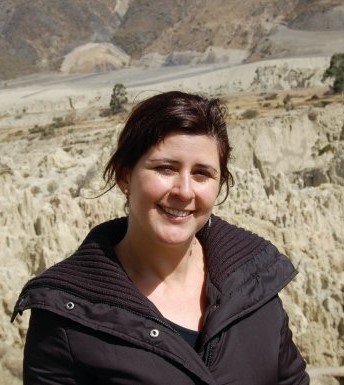Paula Saravia, University of California San Diego – Patagonia Sadness
 Communities are very vulnerable to environmental changes.
Communities are very vulnerable to environmental changes.
Paula Saravia, researcher at the University of California San Diego, explores how health can be intertwined with the environment.
I studied social anthropology at Universidad de Chile (1995-2000), where I specialized in medical anthropology. Before continuing my studies abroad, I worked on poverty reduction programs in Chile, and I also taught at Universidad de Chile as a Lecturer. In 2006 I received an Erasmus Mundus grant from the European Union to study in the interdisciplinary Master’s program “Phoenix Dynamics of Health and Welfare, spending my first year in Portugal at Evora University and my second year in Linköping, Sweden. In my research, I consider different dimensions of inequality, such as race, gender, and class, to understand the unequal distribution of illness and how people seek health care. My doctoral training in medical anthropology at UC San Diego has given me a vast knowledge about global health processes and the structural conditions that perpetuate health disparities in the global North and South. My dissertation research focused on understanding modes of engagement and tuberculosis illness experiences within Aymara communities in Bolivia and Chile.
As part of my postdoctoral training, I conducted ethnographic work in rural and urban areas of Santiago (Chile) to learn about the impact of communicable disease diagnosis (HIV-Aids and tuberculosis) in the mental health of indigenous and non-indigenous communities exposed to conditions of precarity and vulnerability. My current research is oriented towards the understanding of the mental health impact of environmental precarity among communities in Northern Patagonia, Chile.
Patagonia Sadness
The accelerated processes of environmental change have impacted health outcomes and the experience of mental illness in Northern Patagonia, Chile.
This qualitative project aims to characterize the mental health impact of current conditions of environmental precarity associated with long-standing processes of occupation, dispossession, and vulnerability that have taken place in this region since the formation of the Chilean state in the 1800s.
Following a life-course approach, our team is constructing a detailed timeline of environmental disasters, gathering data on the specific mental health outcomes associated with each event.
Our preliminary findings show that the indigenous idiom of deep sadness, “huesa kutran,” is connected to collective memories of environmental vulnerability, such as the 1960 earthquake and the toxic algal (dinoflagellates) or red tide event of 2016.
Huesa Kutran – Tormento del alma refers to the experience of overwhelming sadness due to situations beyond the individual’s control. It is associated with abandonment, anxiety, and suffering in view of intersecting vulnerability.
This project encapsulates two central tenets of Global Health: achieving health equity and examining how global structural conditions shape the health of communities and individuals. Simultaneously, our research raises the relevant question of the challenges of supporting indigenous priorities and decolonizing Global Health.


